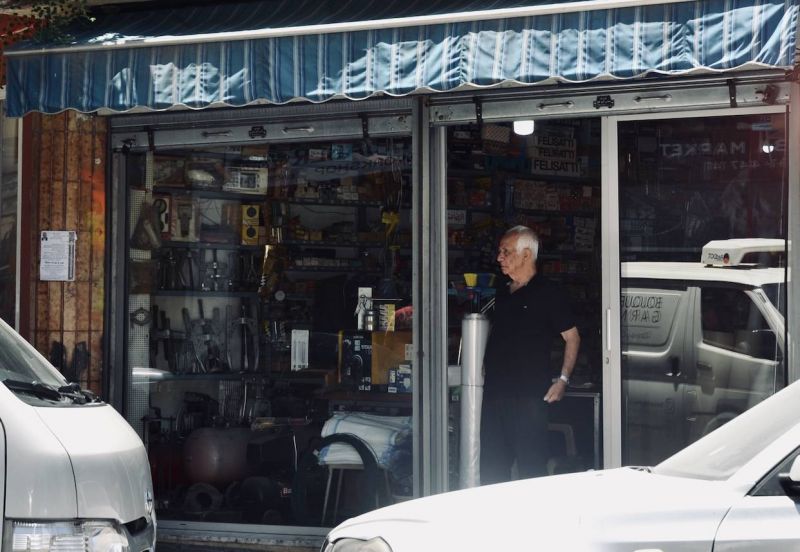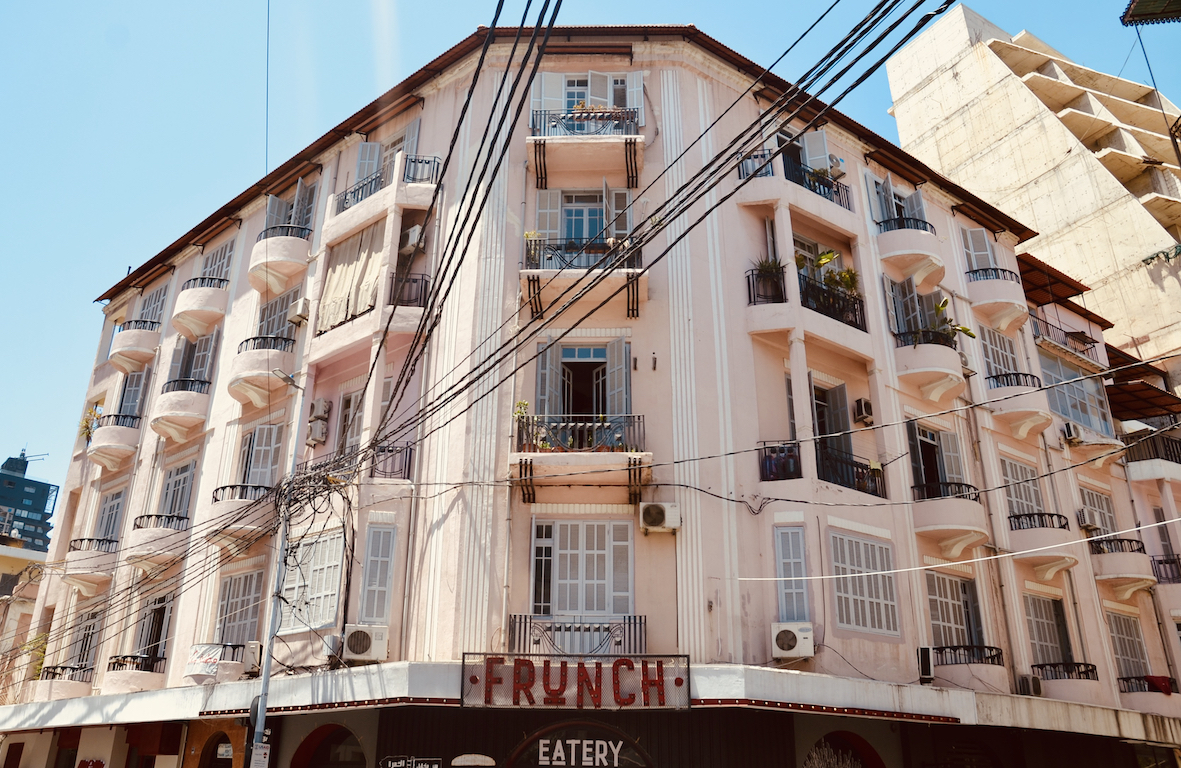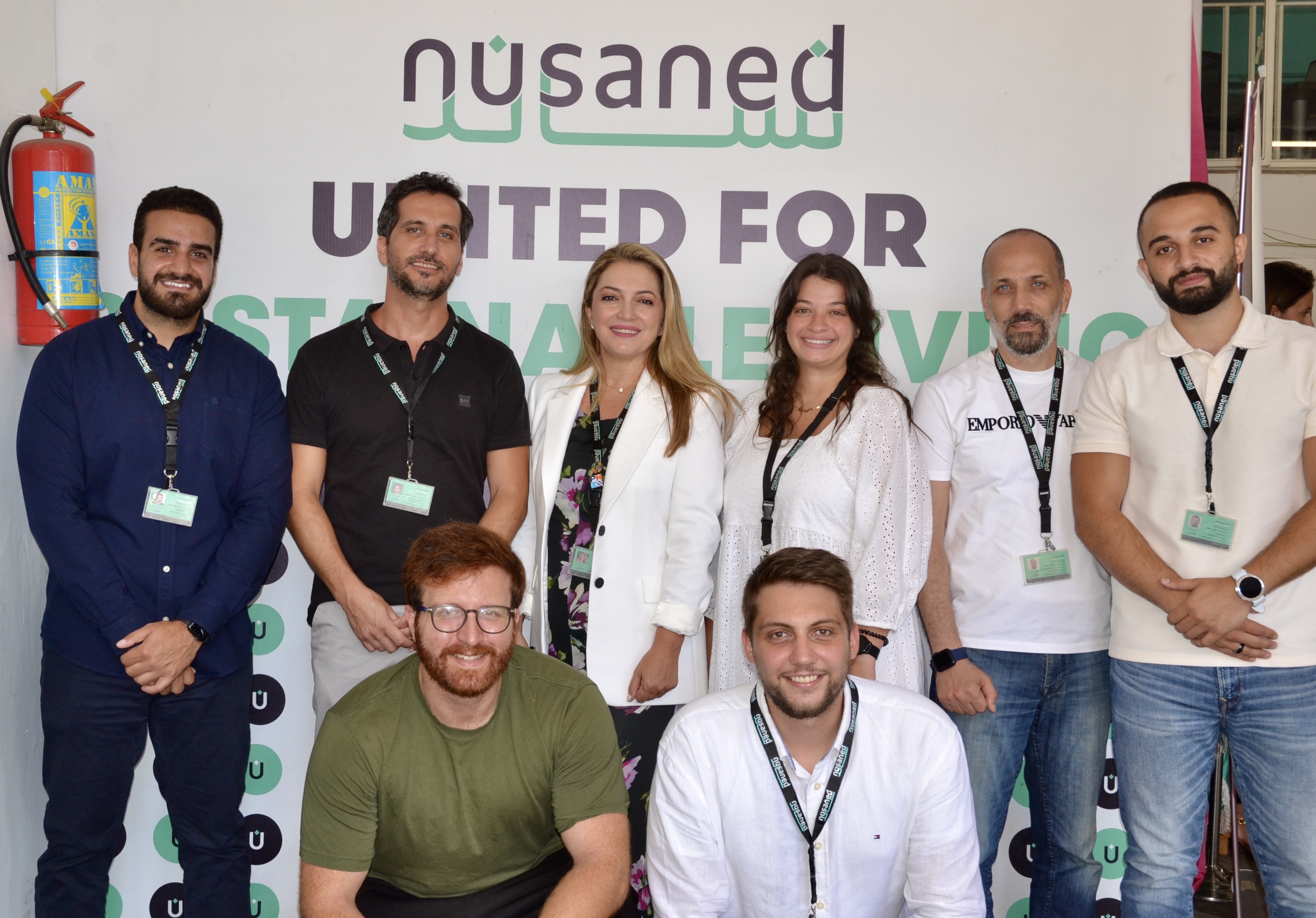
Nusaned says it wants to lure small and medium-sized enterprises into the port-side neighborhoods. (Credit: Yasmina Abou-Haka/L’Orient Today)
Nusaned depicts itself as a humanitarian, community-based volunteer organization. Interior architect Charbel Tawil joined the NGO on Aug. 4, 2020, after architect and Nusaned vice-president Rana Samara Jubayli called him. He is now the organization’s head of programs.
“When the blast happened, we knew immediate action was necessary,” Tawil recalls. “Our target was to rehabilitate 2,500 units, both residential and commercial. We were able to reach this goal within a year,” thanks in part to a $1,550,000 grant from Impact Lebanon — “[an expat] youth movement that wants to make a change in Lebanon” as co-founder Nader Noueiri describes it.
Nusaned has experience with residential rehabilitation. They launched in December 2019 a program in Akkar that rehabilitated 300 houses in 28 neighborhoods.
In Gemmayzeh and Mar Mikhael, Nusaned collaborated closely with the United Nations and the Lebanese army to coordinate relief efforts.
“It wasn't easy to coordinate, as each organization had different standards,” explained Tawil. The UN assigned specific NGOs to each area. Nusaned was dedicated to a specific area in Mar Mikhael and also worked as implementing partners for international NGOs like Save the Children, CARE, MEDAIR, in areas such as Rmeil, Bourj Hammoud, Ashrafieh, and Geitawi.
Nusaned also received a flexible $100,000 donation from PepsiCo, allowing them to focus on the food and beverage sector, considered crucial for the city’s recovery. Nusaned partnered with the Syndicate of Owners of Restaurants, Cafés, Night-Clubs & Pastries and Apave, an audit company, to bring back small and medium-sized enterprises (SMEs) and restaurants.
“We refused to let Mar Mikhael become only a residential area without shops and restaurants. It was important to preserve its cultural identity too,” stated Tawil. “Our goal was to bring it back to the way it was before the explosion and the crisis.”
Overall, Nusaned rehabilitated 32 restaurants among which Mayrig, Dar El Gemmayze, Tamashi, Tavolina and Slate.
Obstacles to recovery
 Tawil: 'We refused to let Mar Mikhael become only a residential area without shops and restaurants.' (Credit: Yasmina Abou-Haka/L’Orient Today)
Tawil: 'We refused to let Mar Mikhael become only a residential area without shops and restaurants.' (Credit: Yasmina Abou-Haka/L’Orient Today)
“The first two weeks after the explosion were incredibly tough,” Tawil explains. “It felt like we were on morphine, numb to everything. We had to separate our personal feelings from the situation of the people we were helping.”
Tawil and his colleagues got some training on how to behave when helping people.
“To cope with the emotional toll, we attended workshops with psychologists,” he explains, “where we could share our feelings and experiences.”
The aftermath of the blast presented numerous obstacles.
“Raw materials were cut at times due to supply and demand disruptions,” Tawil recalled, “and the crisis exacerbated these issues.”
Some of the homes in need of rehabilitation fell victim to looting in insecurity that followed the blast.
“Houses that were rehabilitated were at risk of theft, especially in the areas that were still insecure and lacked proper street lighting.”
One significant obstacle Nusaned faced was that some proprietors opted not to restore their heritage buildings, but instead to erect new buildings on the same sites. Such property owners have significantly increased rents, and many tenants have been compelled to vacate these buildings.
Another problem Tawil has encountered is pride. “Lebanese people still feel ashamed to ask for help,” he said. “Their dignity doesn’t permit them to work with NGOs.”
Nusaned since Aug. 4, 2020
 Nusaned team, from left : Houssam Hneineh, Charbel Tawil, Ghaida Nawam, Najah Saati, Mohamad Hafneh, Omar Saado, Toufic Rmeiti, Georges Haffar. (Credit: Yasmina Abou-Haka/L’Orient Today).
Nusaned team, from left : Houssam Hneineh, Charbel Tawil, Ghaida Nawam, Najah Saati, Mohamad Hafneh, Omar Saado, Toufic Rmeiti, Georges Haffar. (Credit: Yasmina Abou-Haka/L’Orient Today).
After the blast, Nusaned continued working with restaurants they helped restore.
As their goal is sustainability, they decided to “collect organic waste” from restaurants, supported by a grant from the United Nations Environment Programme (UNEP).
“Our mission transcends [simply collecting] waste. It encompasses education and empowerment,” Tawil said. “By teaching responsible consumption habits, our project endeavors to reduce excess waste, promoting a sustainable approach. Monitoring the amount of daily waste received informs us of shifting habits, enabling timely intervention to address wasteful practices within restaurants.”
Restaurants Nusaned has restored benefit from a voucher system, but Tawil sees the organization’s work as benefitting local small business as a whole.
“We don't work with big supermarkets,” he added. “We work with small vendors, which is harder for us because we have to make sure that they are able to serve us in different capacities. Small local businesses are benefiting.”